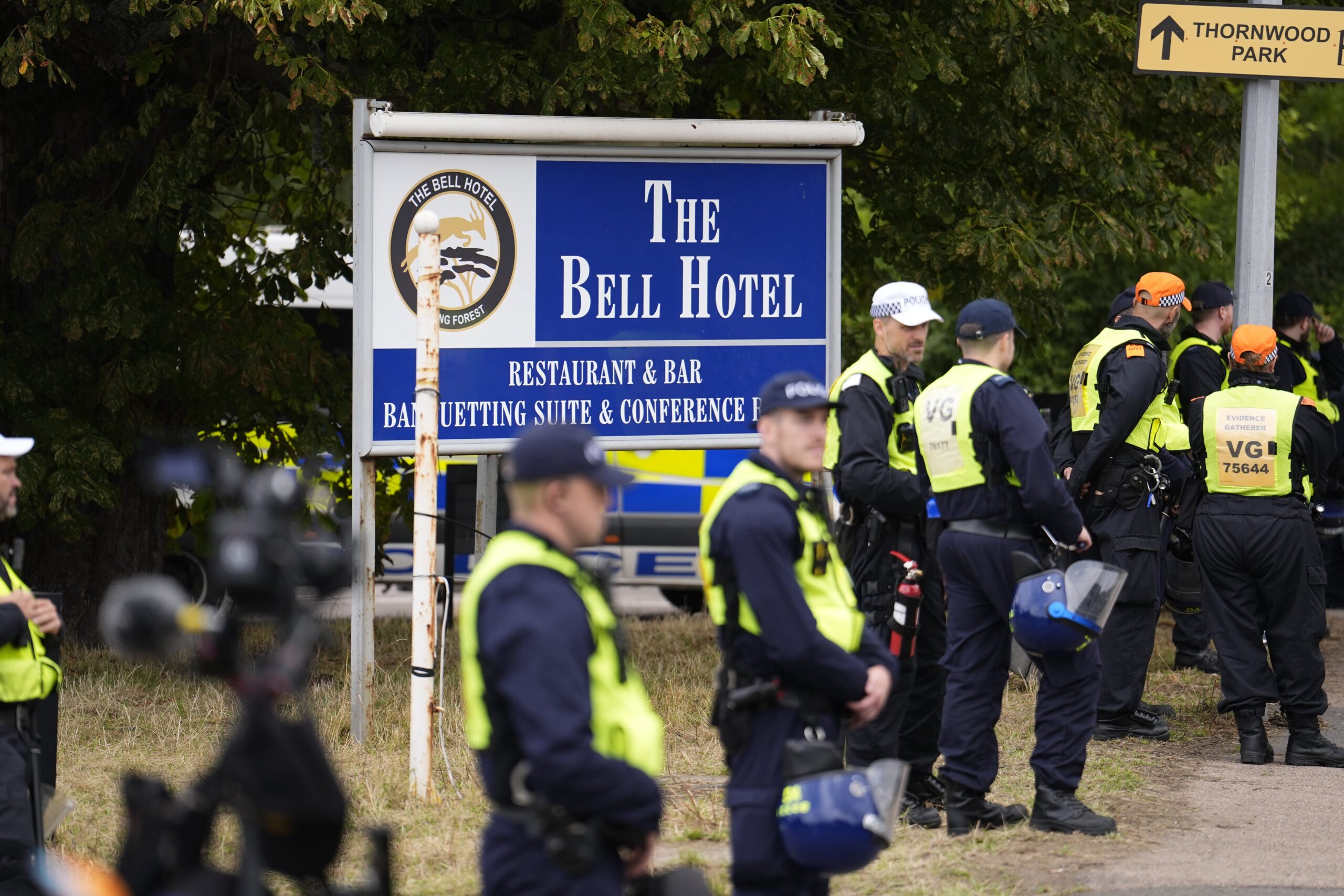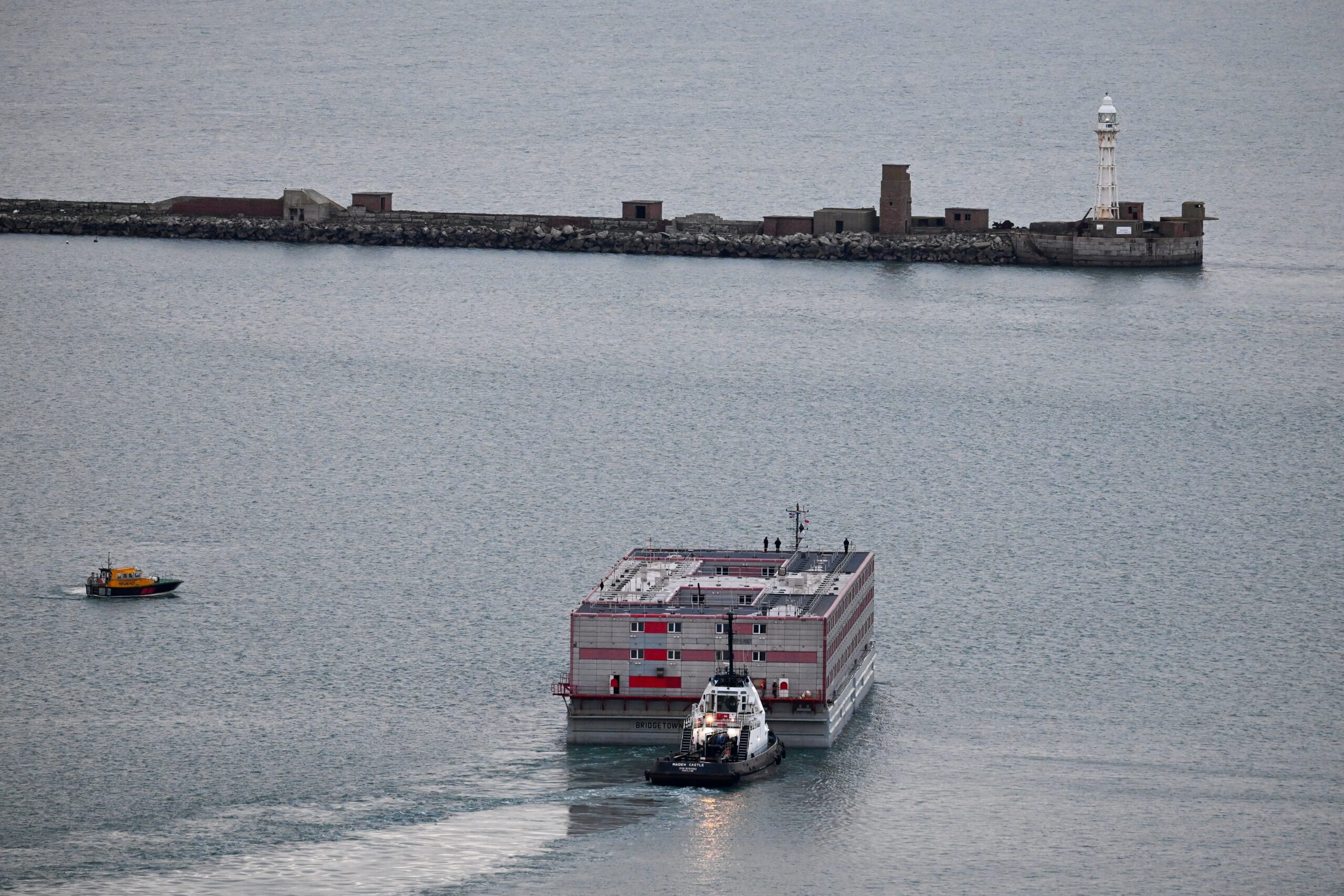A High Court Judge ruled that asylum seekers can no longer be housed at a hotel in Epping that has been the site of multiple protests in recent weeks.
Epping Forest District Council won an interim injunction to stop asylum seekers being hosted at The Bell Hotel, saying it had become a “feeding ground for unrest.”
The judgement requires all migrants currently housed in the hotel – around 140 men as of last month – to leave by 4pm on 12 September.
The Home Office is responsible for asylum and protection in the UK, and must now find somewhere else for these people to go. Reacting to the ruling, it warned it would “substantially impact” its ability to house asylum seekers across the UK.
Home secretary Yvette Cooper had unsuccessfully attempted to have the council’s case dismissed shortly before the ruling.

Other councils have also shown an interest in following suit in the wake of the ruling. However, none have initiated legal proceedings similar to Epping.
Most experts agree that housing asylum seekers in hotels is not appropriate for a number of reasons. Cost, overcrowding and community tensions are amongst of the most commonly cited reasons.
Border security minister Angela Eagle said the government will “continue working with local authorities and communities to address legitimate concerns”, adding: “Our work continues to close all asylum hotels by the end of this Parliament.”
The case raises the question of where the asylum seekers currently in the Bell Hotel will need to go come September and, should the widespread use of migrant hotels come to an end, where all people currently housed in them can be placed instead.
Hotels
The latest Home Office figures show that there were 32,059 asylum seekers in UK hotels at the end of June, up eight per cent on the same point 12 months ago.
This is down slightly on the previous quarter, however, and far lower than the peak of 56,000 in September 2023. There are also now fewer than 210 hotels in use, down from 400 in summer 2023.
These hotels only make up around 35 per cent of all people in asylum accommodation, according to a report from the National Audit Office (NAO) in May.

But their cost is disproportionately expensive, making up 76 per cent of total government spending on asylum accommodation.
And, as has been seen in recent months, they are also a hot-bed for protests which have oftentimes turned violent.
Imran Hussain, director of external affairs at Refugee Council said: “Asylum hotels have become a flashpoint for tension in communities, cost billions to the taxpayer, and leave people trapped in limbo.
Ending their use is in everyone’s interest, but the Government’s current plan to phase them out by 2029 is far too slow. We need to reform the accommodation system so that councils can house people in the community.”
Housing
Moving more asylum seekers into houses or flats is one possible alternative to the use of hotels. These could be provided by private landlords or social housing groups.
Around 66,000 migrants were housed in these kind of properties by the end of December 2024, compared to 38,000 in hotels at the same time.
The main criticism of this approach is that it will add more demand onto the UK’s already stretched housing industry.
In the private sector, rising rents are making living costs unaffordable for many households. Moving more asylum seekers into these properties – funded by the government – may push up rental prices further and create less availability for UK residents.
However, housing more asylum seekers in social housing would possibly create issues for residents who are struggling most in that local authority. The waiting list for council housing reached over 300,000 in 2024 – if more migrants are moved into social housing, the already-long wait times may increase further.
Mr Hussain said: “Housing people in communities is cheaper and more effective than hotels or military sites. Local authorities already manage housing for other groups and know their local areas best, so they’re well placed to provide accommodation.”
“Ultimately, the only way to end hotel use for good is to resolve asylum applications quickly and accurately so people can either rebuild their lives here or return home with dignity. This will cut costs and allow refugees to integrate into their new communities, contribute, and play their part in Britain.”
Military bases and boats
Military bases have been used to accommodate asylum seekers in the past, but their use attracted widespread criticism.
In 2022, the Conservative government said it would use ‘large sites’ like ex-military facilities, as well as barges and ferries to reduce demand on asylum hotels.
The only two sites still in use are Wethersfield Airfield in Essex and Napier Barracks in Kent. As of December 2024, there were only 735 migrants living between them.
The government said in March that Napier Barracks would be closing after multiple allegations of poor conditions and criticism from MPs.
It was also found that former home secretary Suella Braverman acted unlawfully in accommodating three asylum seekers at Wethersfield who argued they were living in ‘prison-like’ conditions.

However, despite pledging to close Wethersfield in opposition, Labour is set to continue and even expand its use, increasing its capacity from 800 to 1,225 in July.
Most agree that the use of boats is not a tenable or humane solution. The last people left the Dorset-moored Bibby Stockholm in November after fierce criticism against the ‘migrant barge’.
Student accommodation
The government purchased former student accommodation in Huddersfield in 2023 with the purpose of housing asylum seekers. As of February 2025, the property was under development, according to the NAO.
The 405-bed block of flats will hold a maximum of 670 people, the Home Office has said. There were reports that 168 students had planned to live in the building and were told they had to make alternative arrangements, although the government denied this.
Using this kind of accommodation – already built for temporary use – may be a strong option to replace the use of hotels in the coming years.
However, Kirklees Council said in March that there were issues it would like to see addressed before the plans go ahead.
Council leader Cathy Scott said: “The Home Office needs to commit to engaging properly with the Huddersfield community on its plans as well as addressing the many important issues the council and its partners have put forward before the site becomes operational.
She added: “In Kirklees, we have a strong record of supporting people who are fleeing persecution. But the system relies on trust and confidence. We do not believe the Home Office has done enough to build trust over the past six months. That’s why we will continue to raise our concerns on behalf of local residents and communities.”
